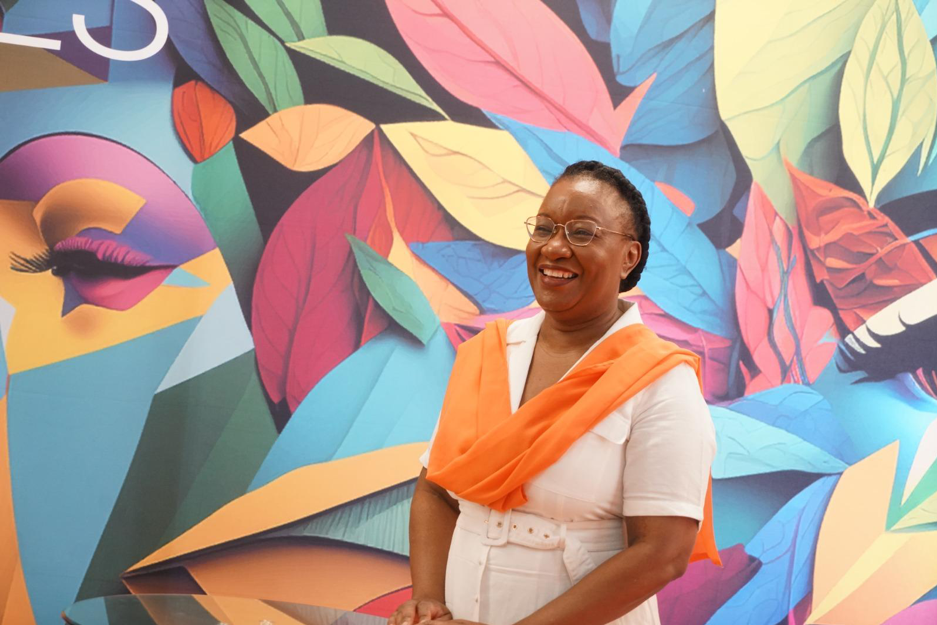Opinion editorial by Lydia Zigomo, UNFPA East and Southern Africa Regional Director
The young girls and boys raised their arms and stomped their feet during the opening of the 22nd International Conference on AIDS and Sexually Transmitted Infections (ICASA), their energy and hope blending with reflection and determination.
As a Zimbabwean who witnessed the scourge brought about by AIDS on families, communities, and countries, I am humbled by the strides we have made but conscious of the hurdles we must overcome.
In our pursuit to transform Africa's fight against HIV, there is indeed cause for celebration. Significant drops in new infections among children and young people bear witness to the success of targeted interventions. However, the theme of ICASA rings true – AIDS is not over. Last year, 210,000 adolescent girls and young women worldwide acquired HIV, with 63 per cent coming from sub-Saharan Africa. Our progress, though inspiring, is delicate, and the road ahead demands a stronger effort that can withstand the tension and stresses wielded against it.

Statistics reflect a stark picture of human lives, and UNFPA champions a proactive approach, aiming to address the root cause of new infections. Zeroing in on the sexual and reproductive health needs and rights of all women and young people is the key. This encompasses dismantling gender inequality, eliminating gender-based violence, and eradicating discrimination – barriers that shroud access to vital services.
Africa, a continent of resilience, bears a disproportionate burden of the HIV epidemic. Of the 39 million people living with HIV globally, more than half call Africa home, with 60 per cent of deaths etched into the African narrative.
Inequalities loom large as an impediment to reducing new HIV infections. Discrimination and the lack of bodily autonomy, especially among women and girls, create formidable barriers. I am reminded of the story of Haillie of Namibia, who was raped at the age of five by a family member. This is a common occurrence in our region, with devastating effects—challenges to mental and physical health, including through exposure to sexually transmitted infections like HIV. Haillie was tested for HIV through a UNFPA-supported mobile clinic. In her vulnerability, she shares a profound truth – when you test, you free your mind, protecting not only yourself but those around you.
We are in dire need of targeted interventions. Haillie and thousands of women are the resilient pillars in the face of adversity, and they also bear the brunt of new infections, necessitating targeted strategies.
The Sustainable Development Goals, including those tethered to HIV and AIDS, are adrift. The largest AIDS conference on the continent, ICASA, is now our arena for transformative change.
As ICASA unfolds, we find solace in many success stories. Zimbabwe is on that path – having already achieved the 95–95–95 targets, along with Botswana, Eswatini, and others. This illuminates a path to follow on our united journey towards 2025 prevention targets and the goal of ending AIDS by 2030.
However, gaps persist, and AIDS responses risk leaving too many behind. Accelerating and scaling up the HIV response is not a mere option; it is an imperative. Beyond health concerns, societal barriers demand our attention. A comprehensive strategy must encompass dismantling restrictive laws, policies, and cultural practices that breed stigma and discrimination.
Communities must take the lead, with grassroots initiatives providing a fast track for HIV responses. Empowering individuals to exercise their sexual and reproductive rights is paramount. Renewing political commitment and ensuring sufficient, sustainable funding are our guiding stars.
As we progress through ICASA, the world watches, hoping that Africa can spearhead transformative change. It is a call to action, a symphony of hope resonating for a healthier, AIDS-free future.
In the delicate contrast between statistics and sentiment, let us script a narrative where we can all raise our hands together and stomp our feet in celebration with the young people – heralding our triumph in banishing the shadow of AIDS.




